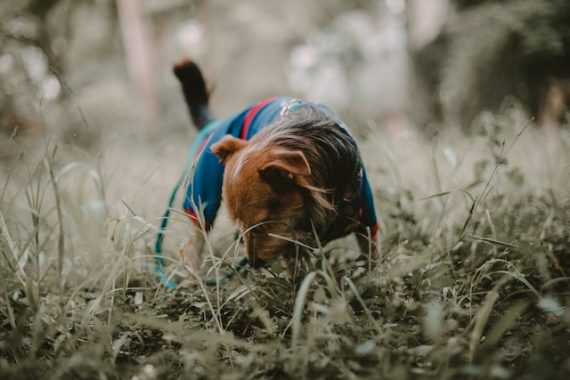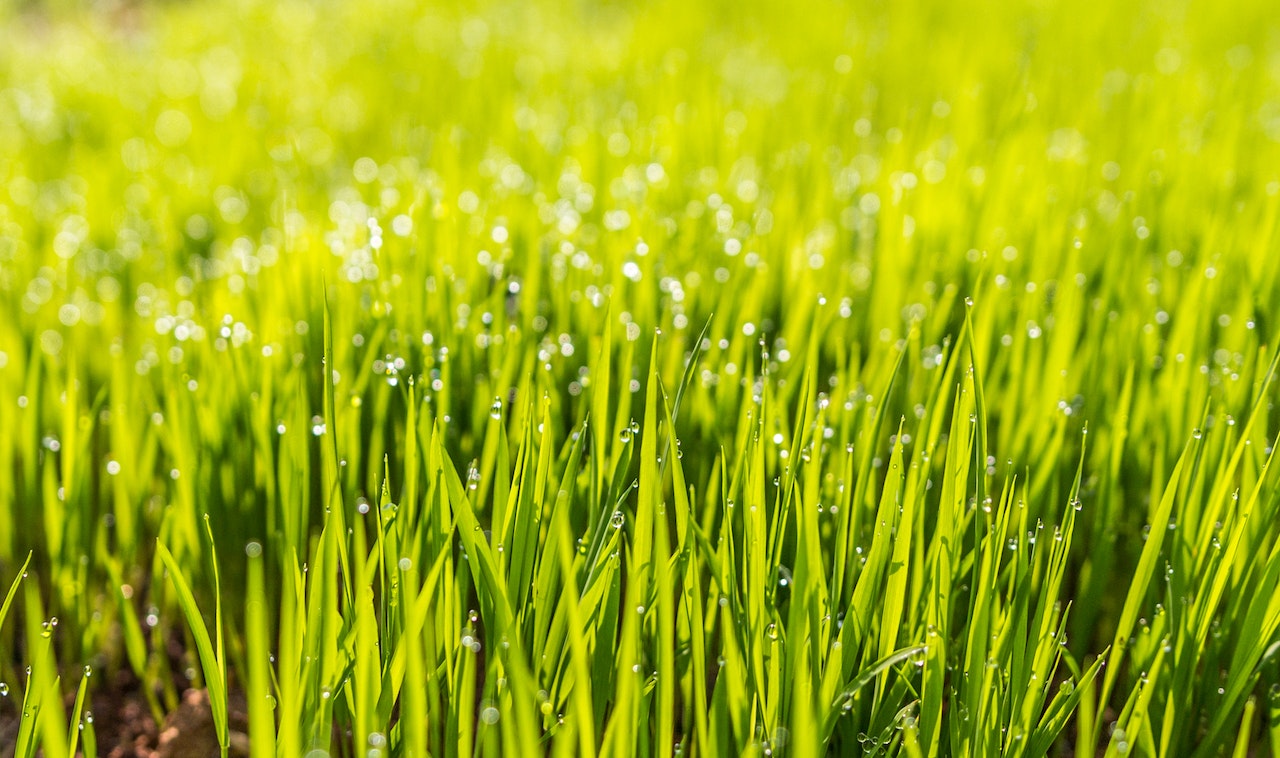Change the environment of your lawn to rid yourself of pests. For instance, by regularly aerating and removing thatch from the yard you can eliminate food sources for these critters.
Introduce pest-repelling plants like lemon basil, lavender and citronella into your yard to deter pests. Furthermore, bird populations will help eliminate bugs from your backyard as they consume any remaining bugs or pests that remain.
1. Mow Often
An attractive lawn is one of the hallmarks of home landscape. Unfortunately, when damaged by pests such as insects and rodents, its appearance and health can quickly deteriorate rapidly. Gaining knowledge about which pests attack your grass and devising an effective treatment plan will allow you to keep it looking its best while remaining pest-free.
Lawn grubs are C-shaped larvae of various beetles (like Japanese beetles and masked chafers ) that hatch between spring and summer and feed on grass roots just below the soil’s surface, damaging its greenery permanently by eating away at its roots and feeding off of its energy source, roots. Damaged grass often turns brown quickly after infestation by these lawn grubs – perhaps never recovering again!
Regular lawn mowings will reduce damage caused by beetles. Mowing regularly also encourages wildlife that consume these pests (frogs, birds and squirrels for instance), helping eliminate this issue without resorting to chemical pesticides.
2. Reduce Weeds
Weeds in your yard can be more than an eyesore: they can actually interfere with healthy grass growth and attract unwanted pests. Furthermore, they drain precious nutrients, water and sunlight away from your lawn’s health.
Regular hand or garden tool weeding will help keep the weed population down and stop any spread. Use a sharp bladed weeder for clean removal of weeds.
Some weeds (like lamb’s quarters ) can make for delicious additions to soups, salads or stir fries; therefore, cultivating these weeds instead of killing them could be more effective.
Mulch can help regulate temperatures in your yard while deterring weeds from taking hold. Be wary when spreading mulch too close to trees as this could potentially girdle them and ultimately kill them off.
3. Keep Your Yard Clean
An untidy yard is an invitation for pests. Snakes, spiders, and ants all prefer dark, damp environments such as piles of decaying leaves in your yard – snakes especially. To minimize pest issues in your yard by keeping it clear of leaves clutter. In case granular and liquid fungicide options are what you are looking for, it is best that you check the hyperlink to know more.
Overgrown weeds and grass provide the ideal breeding grounds for ticks, gnats and mosquitoes to thrive. Standing water also attracts them; therefore it is wise to regularly empty buckets, kiddie pools and birdbaths of standing water as part of your mosquito control strategy.
Sod webworms are an often-cited lawn pest that cause significant damage by chewing away at turfgrass roots and crowns, often during spring and summer when their fat, c-shaped larvae feed on it. When this damage appears on your lawn it should be treated immediately with either a drench, bait, or granule insecticide containing OMRI-listed products such as bifenthrin, gamma-cyhalothrin lambda-cyhalothrin or permethrin for best results.
4. Apply Nematodes
Nematodes are microscopic worms that use parasitic organisms called nematodes to attack and eliminate grubs, eliminating the need for chemical pesticides. When applied at the right time, as this is when they’re most vulnerable.
Before applying nematodes to your lawn, mix them in a large bucket of cool water (filtered or run through a coffee filter), as chlorine could kill them. Apply them using a hose end sprayer, irrigation system pump or backpack sprayer; food coloring in its container allows you to monitor its application rate.
Nematodes take approximately two weeks to have an impactful effect on grub populations, infected grubs taking on a reddish-brown hue after infection, though you may not see any dead ones as evidence that they’re working. Follow up periodically throughout the year; these parasites remain effective up to 95 degrees F but no longer parasitize grubs above that threshold temperature.
5. Get Rid of Slugs
Slugs can be an irritating problem for gardeners. These soft-bodied mollusks thrive in moist and shaded areas and come out at night to feed on various kinds of vegetation, leaving seedlings and vegetables looking like Swiss cheese.
Reduce slug hiding spots by clearing away brush, leafy weeds, stones and debris from around the perimeter. Also avoid mulches which provide shelter such as wood chips, shredded leaves and straw.
Beer traps can also help catch slugs (and other insects). Simply bury a container with a lid, such as a coffee can or cottage cheese container, so it is level with the soil, add an inch or two of beer, and regularly empty and reset them as soon as they catch anything. Alternatively, go “slug hunting” at night by hand-picking their slimy trails which light up under flashlight.
6. Get Rid of Ticks
Ticks thrive in tall grass and weeds that provide them with protection and hiding places, so removing these areas from your yard may help decrease their numbers. Cedar oil is an effective natural repellent which blocks tick breathing pores to kill them; you can apply this spray either with a sprayer or spread in your yard using a rake.
Consider placing gravel or wood chips around the perimeter of your lawn to form a tick-proof barrier and prevent ticks from entering your yard. Tick control requires constant vigilance as these blood-sucking pests carry Lyme disease, typhus and rickettsialpox infections – OMRI listed products should help eliminate ticks in your garden!
7. Keep Your Pets Indoors

Gardeners sometimes fail to realize that the peace and beauty of their yard can quickly turn into an all-out war zone when animals, pests and insects seek refuge there to feed on plants, breed and thrive in your backyard. Luckily, there are several steps that you can take to control pests in your yard and avoid costly repairs later.
Keep your pets indoors as much as possible and do not allow food or drinks to remain outside, including leaving their food dishes out in the yard. Also ensure they are regularly cleaned and stored away. Finally, avoid forms of pest control that could sicken your pet such as fleas ticks and mosquitoes which carry and transmit diseases like Babesiosis tapeworms anemia and contact dermatitis; rodents also pose health threats through bites urine feces spread by young children and elderly pets alike.
8. Control Mosquitoes
Mosquitoes can be one of the toughest lawn pests to eliminate, wreaking havoc with grass and plants and spreading disease to both humans and pets. Effective mosquito control requires knowledge of mosquito behavior as well as regular maintenance to stay on top of things and be effective.
Removing places where mosquitoes breed, rest and lay eggs is key to combatting mosquito infestation. This process can take days or even weeks in suburban environments with lots of trees, bushes and tall grasses, making eradication more complex than anticipated. Chemical treatments may be necessary – sprays applied throughout your yard kill mosquitoes instantly while their eggs and larvae reside in standing water – although their effectiveness can wear off quickly in hot weather or rain, or when temperatures increase significantly – although there are natural alternatives that offer similar performance as their chemical counterparts.
9. Get Rid of Weeds Around Your House
An attractive lawn that’s free from common turf pests provides a wonderful environment for family and friends to spend quality time outdoors. Take proactive measures to keep it that way by regularly mowing, reducing weeds, and using organic methods of control such as Neem oil or Sevin garden insecticide granules for control.
Be mindful that most pests thrive in humid environments, so address any moisture problems such as overflowing gutters or leaky irrigation systems as soon as possible. Chiggers in particular thrive in tall grass and weedy environments where they cling onto skin to inject a digestive enzyme which breaks down tissues.
Be sure to store wood above ground when storing firewood to help ward off termite and ant infestations in your yard, which will save both time and money while keeping your home secure. By doing so, it will prevent pests from invading. This practice also keeps pesticides out of the environment – an invaluable benefit both financially and for home safety!
10. Call the Experts
Pests can wreak havoc in your yard and home, posing serious health threats for both you and your family. By staying on top of regular maintenance and taking the appropriate steps, however, you can prevent pest infestation and enjoy time outdoors without the fear of getting bit or carrying diseases.
Regularly drain out kiddie pools and birdbaths to prevent pests from taking advantage of any standing water that remains. Furthermore, store wood safely above ground as some pests, like termites, may be attracted to it.
If your turf has signs of insect damage, contact a lawn expert right away. Lawn Doctor provides effective mosquito, tick and grub control as well as other solutions.
